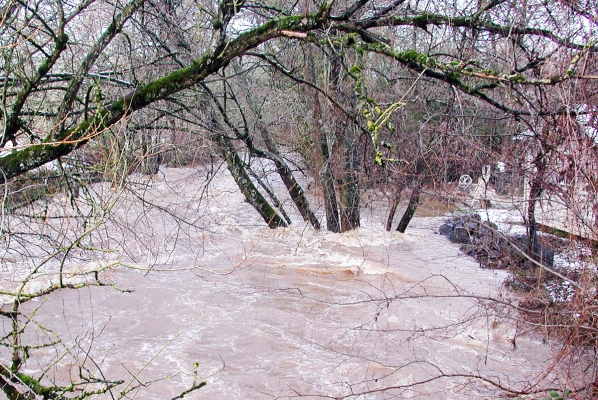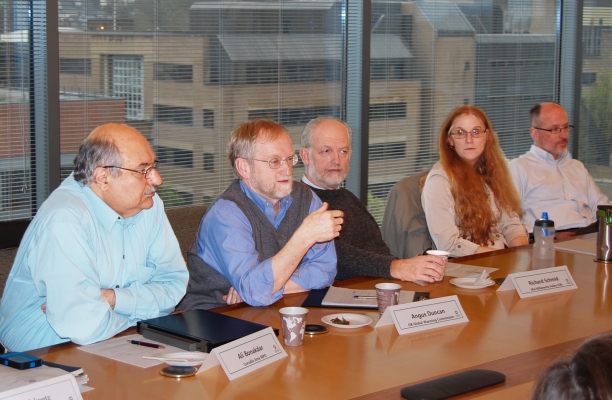Note: This article is the first in a series on OTREC reports that examining the intersection of climate change and transportation. We’ll continue with articles on other topics, including a regionwide impact assessment of climate change effects on transportation and a narrow focus on the effects on public transit.
Of all effects of the climate on transportation, the most costly results from flooding in cities. Flooding disrupts urban life, causing expensive repairs, delays and hazards to address. In the Pacific Northwest, these effects are projected to worsen as human-caused global warming brings wetter weather and higher water tables.
Despite these projections, little research had focused on the effects of increased flooding on the transportation system and how those effects could be lessened. OTREC opened the door to this area of research with a project called Future Flooding Impacts on Transportation Infrastructure and Traffic Patterns Resulting from Climate Change. The final report is available to download here.
The project brought together scholars from Portland State University in the disciplines of geography, civil and environmental engineering, and urban studies and planning with officials from regional government Metro. The researchers also included regional stakeholders...
Read more

